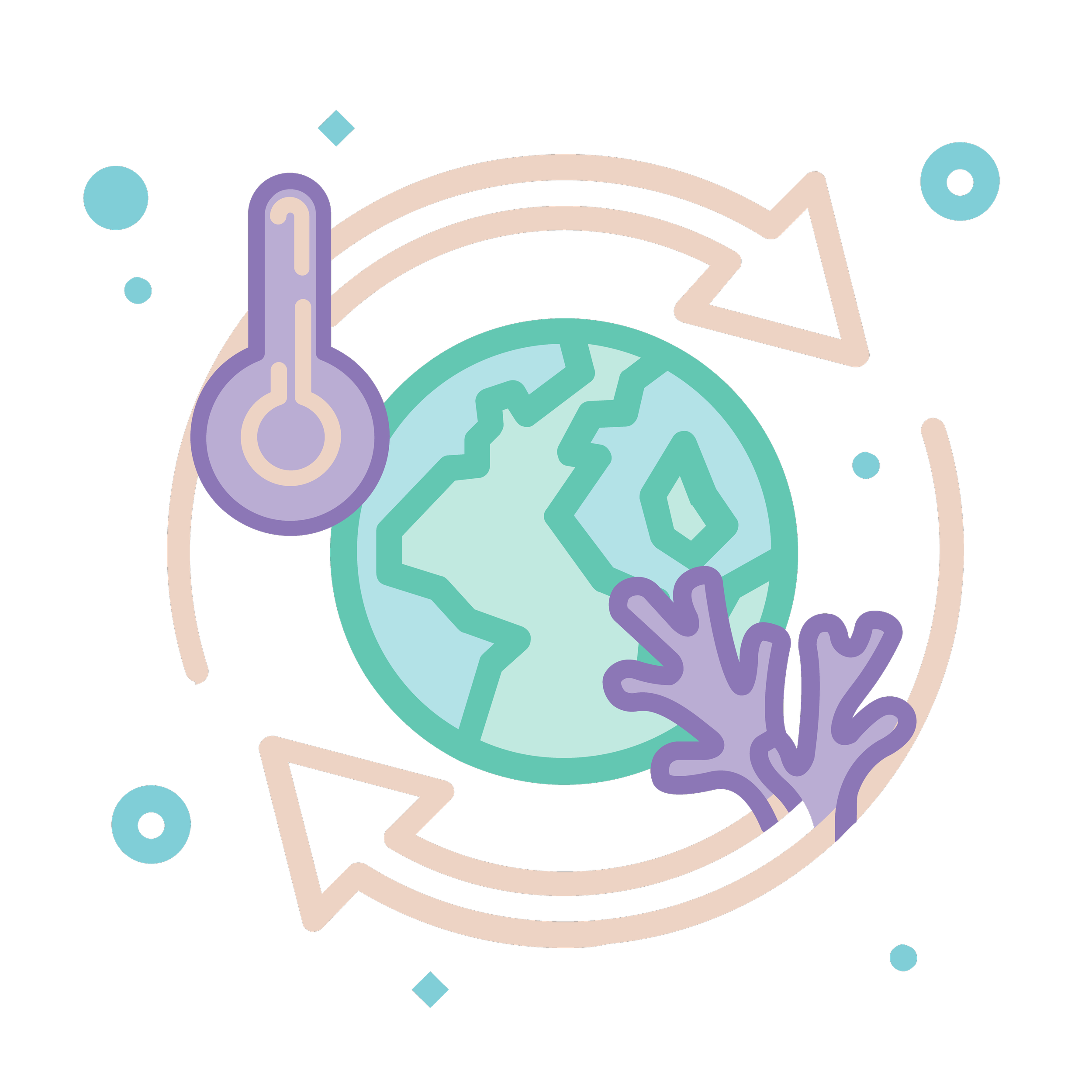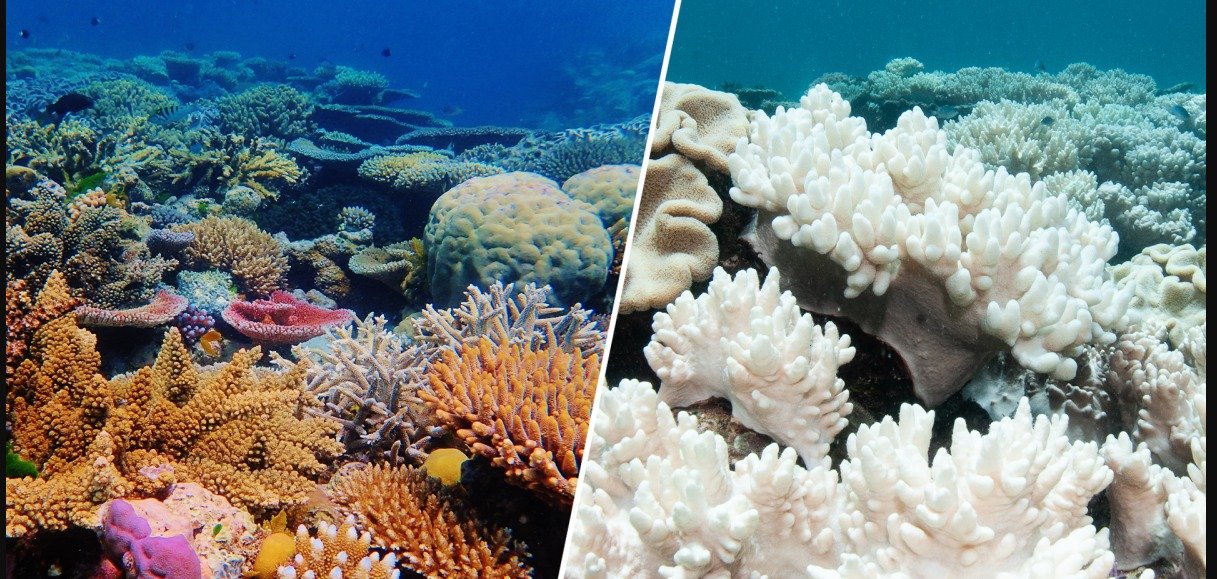Climate change impacts so many different things. Our lives, our homes, our pets, our plants, our food, our waters and pretty much our everything!
Take a look below to learn what can happens when climate change makes the world hotter and when climate change makes our seas rise.
Extreme Weather Events - Floods
Extreme weather events and random weather with extremely heavy rain can result in flooding. Certain low lying areas such as places in Daerah Tutong have flooding happen more often. When flooding happens, it can damage buildings. Fixing these buildings is also expensive and will impact the lives of people in Brunei.
Severe flooding such as that in Jakarta has already made thousands of residents leave their homes. Important services such as hospitals, schools and firefighters also become weaker or even disappear. Poor communities with houses near rivers and coasts also suffer even more. In fact, it is often the poor, not the wealthy that suffer from climate change first. We see this a lot in the country of Bangladesh where many people move away from their homes which are lost to heavy floods and landslides.
Forest Fires and Haze
In recent years, haze has become more common due to the forest fires which are a result of higher temperatures. According to the Fire and Rescue Department, from January 2024 to 23 March 2024, 530 calls were made related to forest and bush fires, with a total of 584 hectares affected. As compared to the previous year in which only 47 calls were received between January 2023 to 20 March 2023. These forest fires can lead to poorer air quality which can have adverse effects on human health.
Forest fires, made worse by climate change and deforestation, is a frequent problem in Sumatra and Kalimantan. The haze from these fires cause a lot of sickness and loss of money, especially for those living in poor or rural areas. As well as for Indigenous peoples and small farmers that live by taking from forest. If our forests are damaged, our lives, our jobs and our health is damaged too. These fires show how everything is connected.
Heat Waves
High outside temperatures can cause a lot of health problems such as heat stroke. If global warming is not stopped, by 2080, there could be 51 heat-related deaths for every 100,000 people in Brunei. If we can stop or slow down global warming, heat-related deaths among the elderly in 2080 can be reduced to 7 deaths per 100,000 people.
If the heat continues to rise and if rains become difficult to predict, this will have negative impacts for farming. High heat and low water will make very hard for plants, vegetables and fruits to grow. Over time, countries can suffer from famine, where there is not enough food for everyone.
Rising Sea Levels
When the Earth gets hotter, there is “thermal expansion”, where the water becomes larger in volume which makes the sea levels to rise. As Brunei is a country that is close to the sea, sea level rise will make people lose their homes that are near and even on water (Kg Ayer), it will also damage many shops in the area.
In other countries such as pacific island countries, sea level rise is already destroying houses and lives. Pacific island countries suffer a lot more from sea level rise because these countries are low-lying islands (little to no mountains or hills). These countries suffer from sea-level rise, extreme weather, and ocean acidification.
Many people living in small island countries like Fiji, Kiribati, Marshall Islands, Solomon Islands, Tonga, Tuvalu, and Vanuatu, lose their homes and have to move away from the sea or even away from their own country. More than 50,000 people move away or leave their homes each year due to climate change.
Sea level rise also causes rivers to become more saltier (a process called desalination). In Vietnam, the Mekong Delta river has become saltier due to ocean water going into the river. A dam that was built in the Mekong Delta river also causes less freshwater to flow into the river. If the water becomes too salty, it cannot be used by farmers and people. This causes plants, vegetables and fruits to die. This then makes lives for poor communities even worse. To make sure our rivers remain healthy, we must practice sustainable and good water management and farming strategies that can deal with climate change.
Interactive: Climate Central
You can also get to know the devastating impacts of sea level rise through the Climate Central Sea Level Projection below.
Get a glimpse into the future where we don’t do anything to stop climate change. You’ll be surprised at how a couple of inches of water could cause so many people to lose their homes. Countries even lose their capitals!
Ecosystem Degradation and Loss
A warming ocean has negative impacts for life under the sea. Sea level rise leads to coral reefs to suffer and even die (see below for a lesson on coral reefs!). Sea level rise also leads to more soil to cover the surface of the sea (a process called sedimentation). This sedimentation can cover plants and animals on the surface of the ocean, preventing them from receiving sunlight, which then can cause them to die.
Climate change and loss of land and sea organisms (or loss of biodiversity) are strongly connected to each other. If climate change gets worse, biodiversity is in danger, including human beings!
As temperatures rise due to greenhouse gas emissions, homes for animals and plants change a lot, making it difficult for these animals and plants to live in. This can result in animals moving away from their homes, changes in reproductive cycles, and higher risks of extinction. Moreover, climate change makes negative things worse such as habitat destruction, pollution, and invasive species.
With less biodiversity, it becomes harder for ecosystems (the homes of animals and plants) to exist. If ecosystems were to disappear, we humans would also lose important things such as water from rivers. Ecosystems can also protect us from diseases and pollination (an important process fruits and plants to grow).
Case Study: Coral Bleaching in Brunei - Poni Marine and Reef Balls
Check out the case study by clicking this picture!
Corals are super important to life in water. Coral reefs are made up of small little animals that are like reverse jellyfishes. These “reverse jellyfish” stick to reefs, which are stones near the surface of the ocean bed. Hundreds to thousands of these marine animals live on and in reefs and they permanently stay there. The world's coral reefs cover an amazing 348,000 square kilometres! That’s the same as 57 Bruneis!
Coral reefs are super important because they are homes for many types of fishes in the sea. Allowing fish to grow, feed their babies and nurse them. Without corals, many of the fishes we know (and eat!) will die off!
Corals can also become unhealthy when it’s too hot, something that climate change can cause. When coral reefs become too hot, they lose their colors because they lose the little plants and algae in them. These can make coral reefs become sick and or die off. And if coral reefs die off, so many other sea animals lose their homes.
To preserve our corals, many organizations do hard work to save them! In our home of Brunei, we have the company Poni Marine creating solutions to saving our corals. Poni Marine launched the Brunei Reef Ball Program Launch on 20th July 2023. A reef ball is a man-made structure which looks like a concrete ball. It is made with special concrete with an empty interior space to provide habitat and shelter for marine species and the addition of small holes for corals to grow!
Social
Changes in the climate and increases in extreme weather events are among the reasons behind a global rise in hunger and poor nutrition.
Fisheries, crops, and livestock may be destroyed or become less productive.
Heat stress can lead to less available water and grasslands for grazing.
Economic
Climate change has significant economic impacts across various sectors. It affects water availability and quality, which in turn impacts agriculture, energy, and industry—all of which rely on water supply
Additionally, climate change also makes worse poverty and displacement (when people are forced to leave their homes). Climate change causes a yearly average of 21.5 million people being forcibly displaced by weather-related activities.
Furthermore, the increased frequency and intensity of extreme weather events cause heavy economic damage to buildings, properties and infrastructure. The cost to repair and maintain these buildings can be very heavy for affected regions.
Video: Climate Change in Brunei - Brunei Climate Change Office
Watch the video below by Brunei Climate Change Office to get to know more on climate change below!










